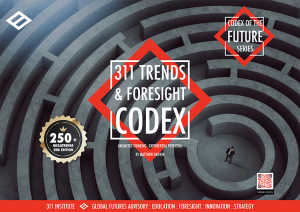WHY THIS MATTERS IN BRIEF
When it comes to skilling up AI has been shown to help junior employees level up faster than their senior counterparts and catch them up in earnings and skills.
Love the Exponential Future? Join our XPotential Community, future proof yourself with courses from XPotential University, read about exponential tech and trends, connect, watch a keynote, or browse my blog.
In a new future of work study conducted at management consulting firm Boston Consulting Group, or BCG, found that consultants who ranked below average in the firm benefitted the most from using Generative Artificial Intelligence (AI) tools like GPT-4 from OpenAI in the workplace, and that more experienced consultants who used them benefitted less well.
The study, published Thursday, involved 758 BCG consultants globally — or about 7% of the company’s individual contributor-level consultants. They were divided into two groups: one with access to GPT-4, the model that currently powers ChatGPT, and another group without.
The Future of AI, by keynote Matthew Griffin
Before the experiment, the staffers were tested to gauge their average level of performance, classifying them into “bottom-half” and “top-half” skilled participants. They were then assigned a series of practical consulting tasks for a fictional shoe company and had their performance graded by human and AI raters.
The greatest gains were seen by below-average performers using AI, whose average performance improved by 43%. Meanwhile their above-average counterparts only saw an average performance increase of 17% from using AI.
The study also found that those who used AI completed their tasks faster and produced higher-quality results than those without access. However, it also underscored the risks of over-reliance on AI. Consultants with access to AI performed up to 20% worse when presented with tasks that were beyond the AI’s grasp. In these cases, the AI would present misleading yet plausible responses. And that’s an interesting twist in the tail for this story.
The study was conducted by researchers from Harvard University, MIT, the University of Warwick, and the University of Pennsylvania, along with the Boston Consulting Group.
Ethan Mollick, a Wharton professor and a co-author of the study, wrote in a post on X, formerly known as Twitter: “AI worked like a leveller: lower performers had the biggest gains.”
Another study — published in April — examined customer service workers at a Fortune 500 company and found that highly-skilled workers saw a “close to 0%” productivity boost with an AI assistant. In contrast, lower-skilled agents saw a productivity boost of 35%.
The post BCG AI in the workplace study shows junior employees benefit more than their seniors appeared first on By Futurist and Virtual Keynote Speaker Matthew Griffin.

